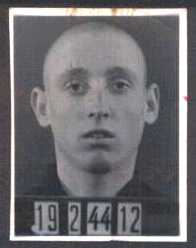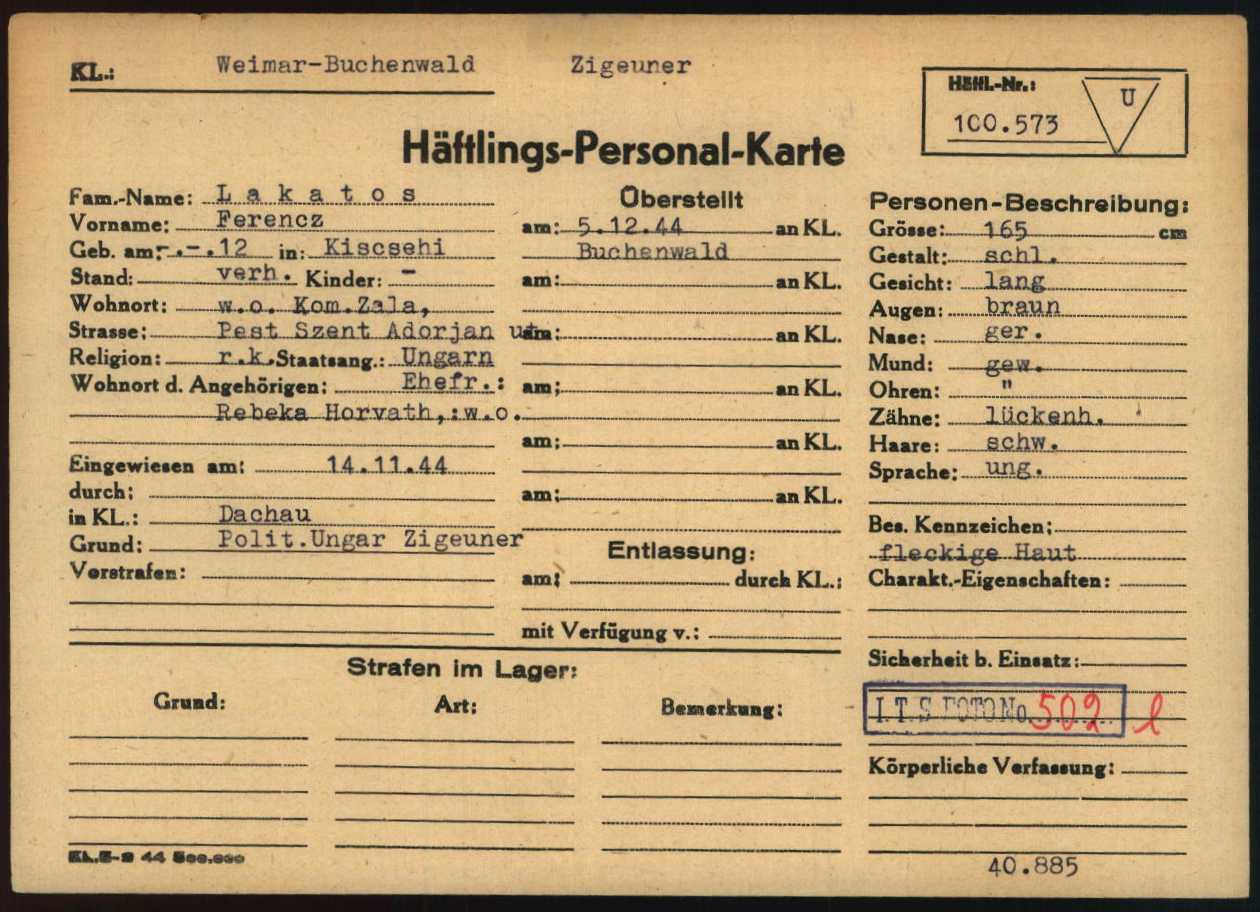From Kiscsehi to Buchenwald - Ferenc Lakatos
(1912, Kiscsehi – 1945, Buchenwald)
Ferenc Lakatos was born on 8 July [October?] 1912 in Kiscsehi, a small village in the south-western border region of Zala county, in the Letenye District. He was the son of a penniless Roman Catholic Roma family, earned his living as a farm labourer, and did not learn to read or write. He and his wife, Rebeka Horváth, lived in the Roma quarter of the village along the Szentadorján stream, which flowed through the locality. We do not know if they had children.
After the Arrow Cross took power, in the first half of November 1944 the Hungarian gendarmerie began rounding up citizens of Roma origin, following a decree of the Szálasi government. Lakatos, along with hundreds of his fellow Roma deportees from the South Transdanubian region, were sent to the Csillagerőd collection camp in Komárom. Here thousands of Roma and other persecutees were held in inhuman conditions. They lacked basic sanitary conditions and were given little to eat or drink.
After a few days, the younger men and women deemed fit for work were selected and handed over to the Germans for forced labour in the Third Reich. The train carrying Ferenc Lakatos and the other deportees arrived at the Dachau concentration camp on 18 November 1944, where Ferenc was registered as prisoner number 128993.

Ferenc Lakatos' photo taken in the concentration camp Dachau in prisoner uniform (ITS Arolsen Archives)
On 4 December 1944, Lakatos was sent by transport to Buchenwald, where he arrived the next day. Here he was assigned prisoner number 100573 [the files also show the number 109.373], and was registered as a Hungarian Roma.

Lakatos's identity card from Buchenwald, with the typed entry Zigeuner, i.e. “Gypsy” (ITS, Arolsen Archives)
Other documents carried the racist stigma of "Arbeitsscheue" (“workshy”). According to the personal data recorded in the camp, Lakatos, who was 165 cm tall and of slim build, could only withstand the cruel working and living conditions for a few weeks. On 17 January, he was formally deleted from the camp registry of living prisoners.






